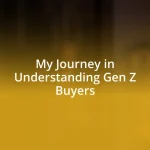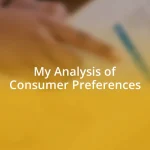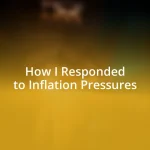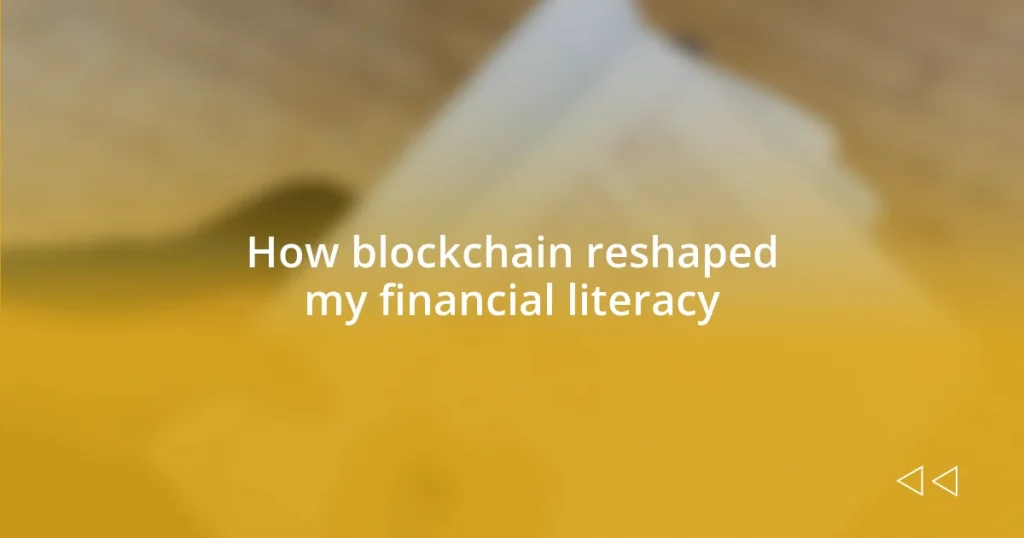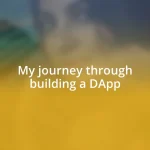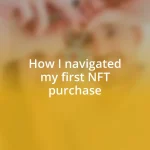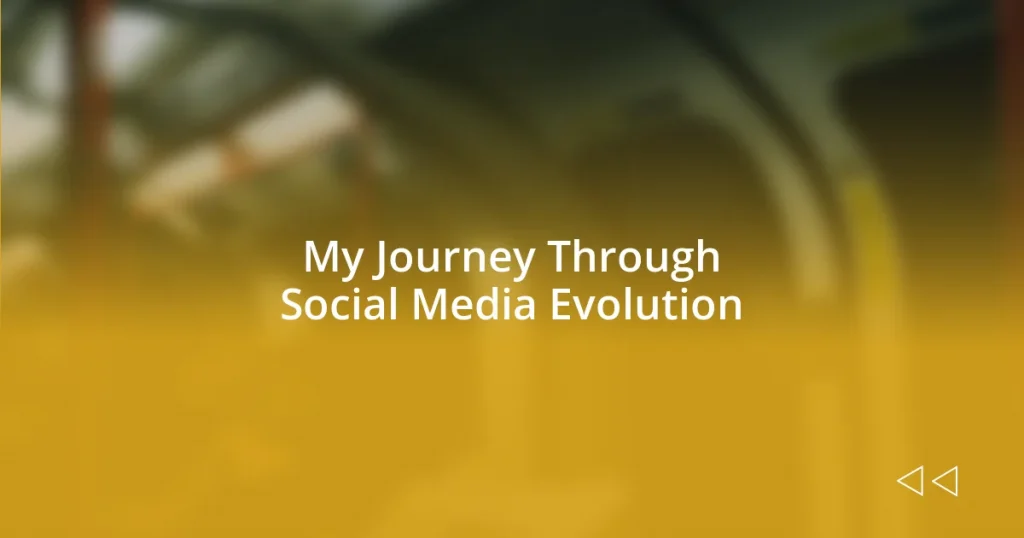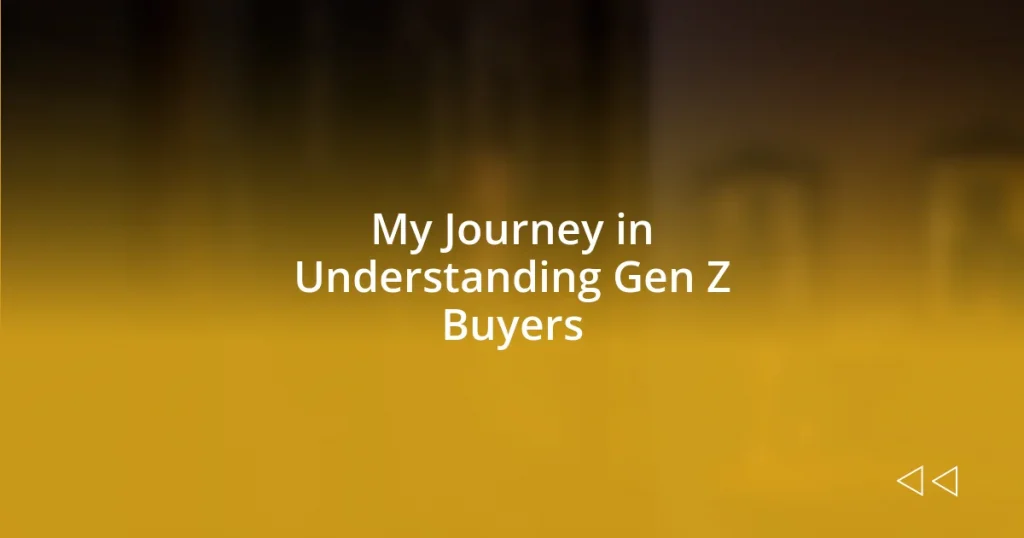Key takeaways:
- Blockchain technology offers a decentralized and transparent system for tracking transactions, enhancing trust and financial literacy.
- Financial literacy empowers individuals to make informed decisions, protecting them from scams and helping them navigate their financial paths proactively.
- Smart contracts and decentralized finance (DeFi) revolutionize financial transactions, allowing for secure, streamlined agreements and greater control over personal finance.
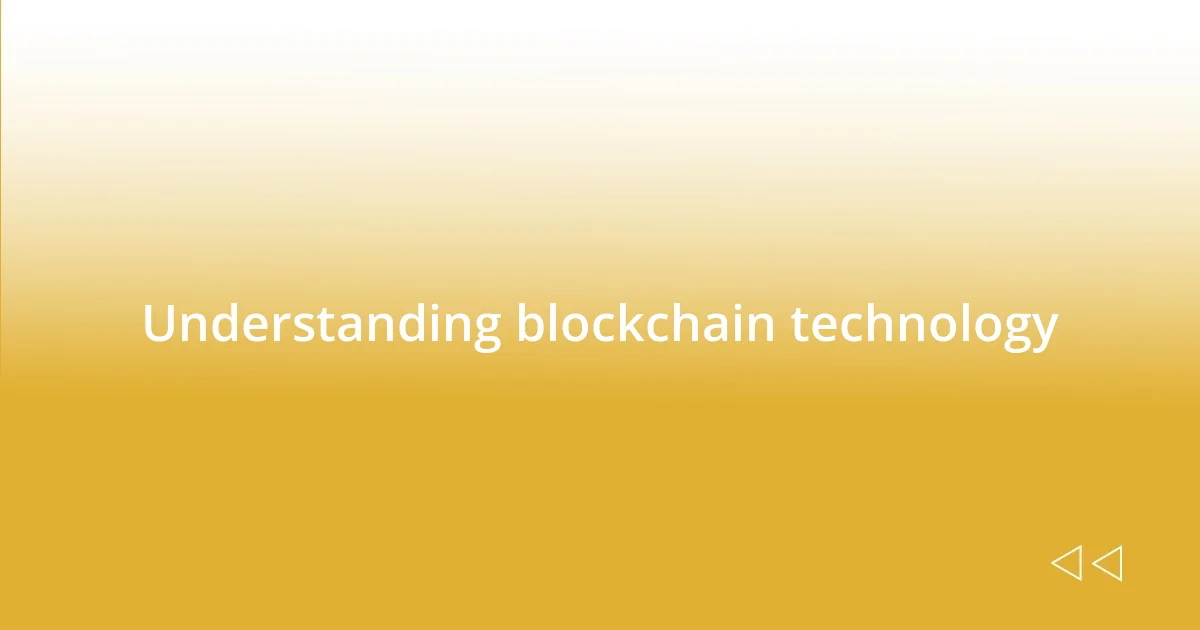
Understanding blockchain technology
Blockchain technology can be a bit daunting at first, but I found that breaking it down made it much more approachable. At its core, it’s a decentralized digital ledger that records transactions across many computers so that the registered transactions cannot be altered retroactively. Now, doesn’t that sound like a way to promote trust?
When I first encountered blockchain, I felt overwhelmed by the technical jargon. But then I thought about it like a shared Google document where everyone can see changes in real-time, but no one can erase the past edits. It struck me how powerful this transparency can be, especially in a world where financial fraud often looms large.
A while back, I started using a blockchain-based application to track my personal spending. It was eye-opening to see clear, immutable records of my transactions, giving me insights I had never fully grasped before. How often do we overlook our finances, assuming they’re just numbers? This technology transformed my understanding, helping me appreciate the importance of each financial decision I made.
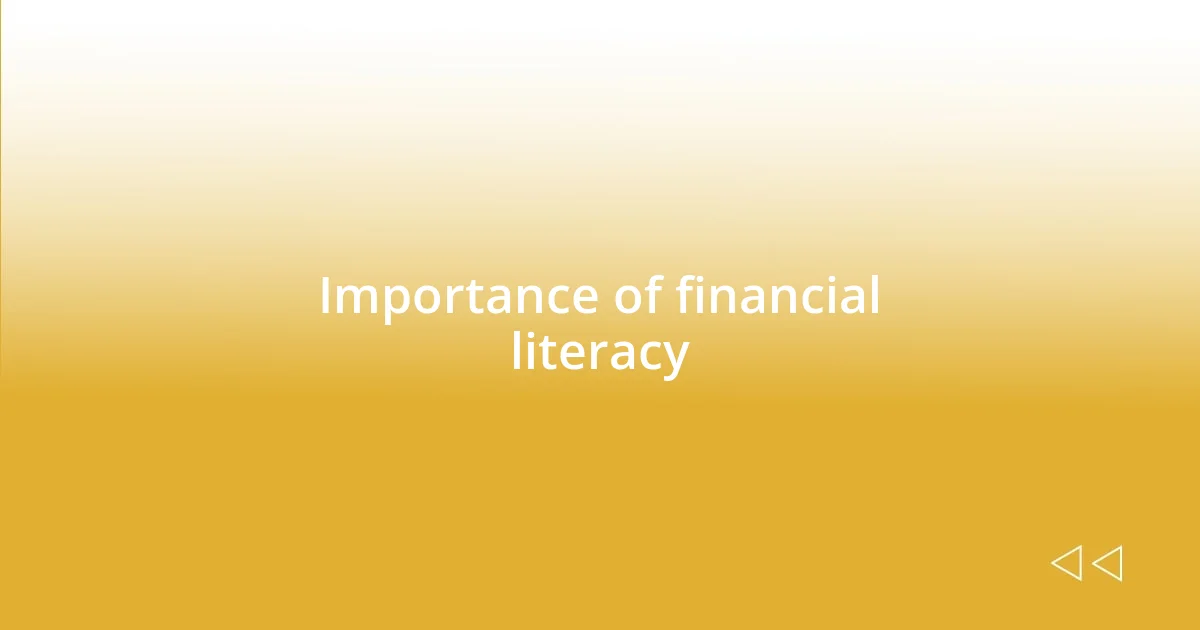
Importance of financial literacy
Financial literacy is crucial in today’s complex economic landscape. It empowers individuals with the knowledge to make informed decisions about budgeting, saving, and investing. I remember when I first realized that without understanding financial concepts, I was merely reacting to my financial situation rather than proactively managing it.
It’s like having a roadmap to navigate through the financial ups and downs of life. The clarity that comes from being financially literate instills confidence, allowing people to plan for their future, whether that’s for a dream home or retirement. I once took a course on financial planning, and the transformation was incredible; I felt more in control of my financial destiny.
Moreover, financial literacy protects individuals from scams and poor investment choices. The more I learned, the better I could differentiate between a good investment and a risky one. Once, I nearly fell for an enticing but dubious investment opportunity. Thanks to my newfound knowledge, I took a step back, evaluated thoroughly, and ultimately avoided a costly mistake. Awareness can truly be a game-changer.
| Aspect | Financial Literacy |
|---|---|
| Definition | Understanding and using financial skills and knowledge |
| Importance | Empowers informed decision-making in personal finance |
| Benefits | Confidence, planning, and protection against scams |
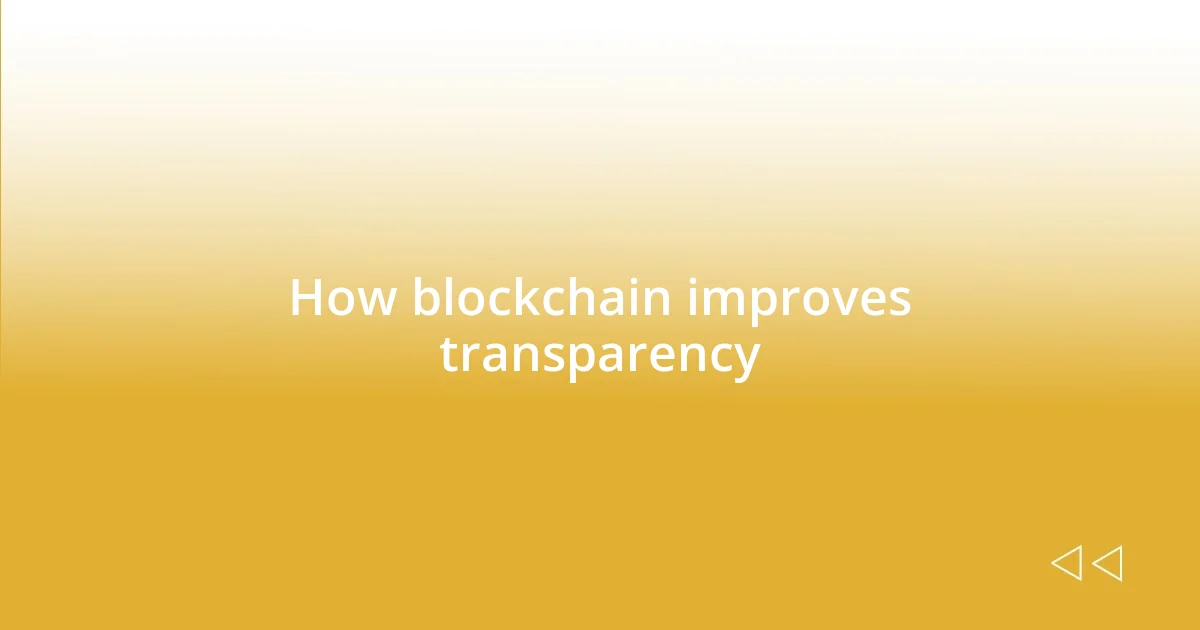
How blockchain improves transparency
Blockchain doesn’t just promise security; it inherently fosters transparency that can be life-changing. I remember a time when I was skeptical about how transparent a digital system could be. Then, I began to track my investments on a blockchain platform. Seeing every transaction publicly recorded made me feel more in control and connected to my financial journey. It reinforced my trust in the system, knowing that no one could alter the records without everyone noticing.
- Every transaction is time-stamped and publicly accessible.
- Changes to the blockchain are visible to all participants, preventing fraud.
- Smart contracts automate processes, ensuring compliance and clarity in agreements.
- Users maintain ownership of their data, leading to greater accountability.
I’ve often heard people say that finance feels like a hidden game played behind closed doors. But with blockchain, it’s like flipping on the lights. There was a moment I felt a rush of relief when I realized I could actually understand where my money was going, without relying on anyone else. This newfound clarity not only improved my confidence but also encouraged me to engage more deeply with my finances, knowing I was seeing the whole picture. Each transaction became a step in my personal growth, and I can’t stress enough how empowering that feels.
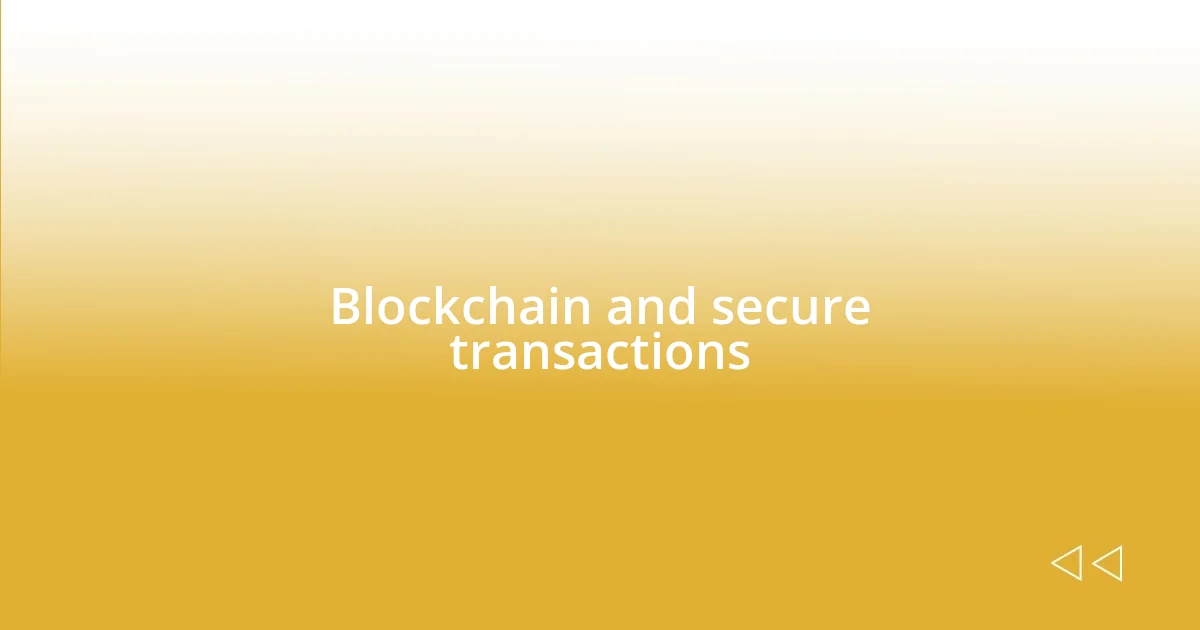
Blockchain and secure transactions
The beauty of blockchain technology lies in its ability to ensure secure transactions, which completely transformed my approach to financial interactions. When I first engaged in a blockchain-based transaction, I remember feeling this mix of excitement and nervousness. However, the moment I realized that each transaction was protected by sophisticated cryptography, my anxiety faded away. It felt like a weight lifted off my shoulders, knowing that my money was safeguarded through decentralized consensus—hard to manipulate or hack.
With traditional financial systems, I often encountered a level of uncertainty that made me hesitant. I once experienced a frustrating delay with a bank transfer, which left me questioning the reliability of the entire process. But blockchain changed that for me. Transactions are not only verified by multiple nodes but are also irreversible—meaning I could trust that the money I sent would reach its destination without interference. It gave me peace of mind that I genuinely didn’t know I was missing.
Imagine knowing that your transaction history is secure and can’t be changed arbitrarily. I’ve had moments where I worried about fraud—like when my credit card was used for unauthorized purchases. The built-in security features of blockchain alleviated that fear. I now actively choose to engage with platforms that use this technology, as it represents trustworthiness in a world where that feels increasingly hard to come by. Doesn’t everyone deserve that kind of assurance regarding their finances?
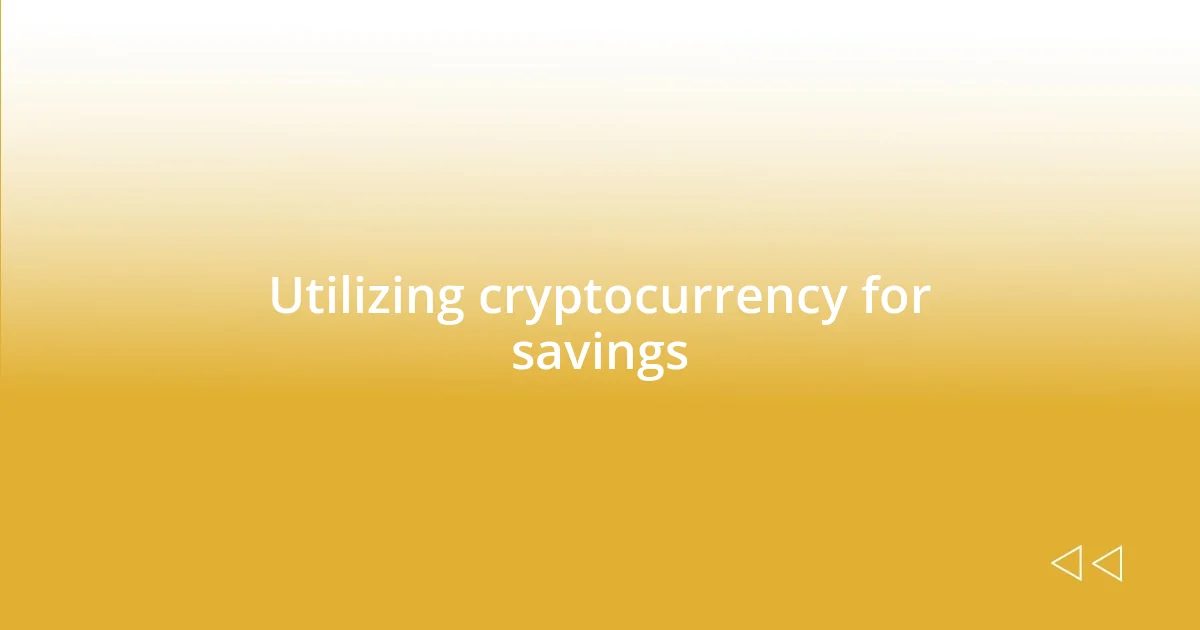
Utilizing cryptocurrency for savings
Utilizing cryptocurrency for savings has been a game-changer for me. I recall the first time I decided to put a little of my savings into Bitcoin. Despite the volatility, there was something exhilarating about watching my investment grow—almost like I was part of a modern day treasure hunt. I felt empowered knowing that I could take control of my savings instead of relying solely on traditional high-yield savings accounts that offer painfully low interest rates.
As I continued to explore various cryptocurrencies, I found that many offer staking options. This allows me to earn passive income on my holdings. I remember the moment I staked a portion of Ethereum and watched my balance gradually increase. It was a delightful realization that my savings could not just sit idle; they could work for me even while I slept. Isn’t it fantastic to think we can leverage our savings in new ways that traditional banks never imagined?
However, I also learned the importance of understanding the risks involved. I’ve had moments where I hesitated, questioning whether I should pull back from volatile markets or dive deeper. But through research and personal experience, I recognized that a diversified approach within the crypto space can lead to substantial rewards. It’s a thrilling yet educational journey that has fundamentally reshaped how I view savings—making it a more proactive and engaged experience.
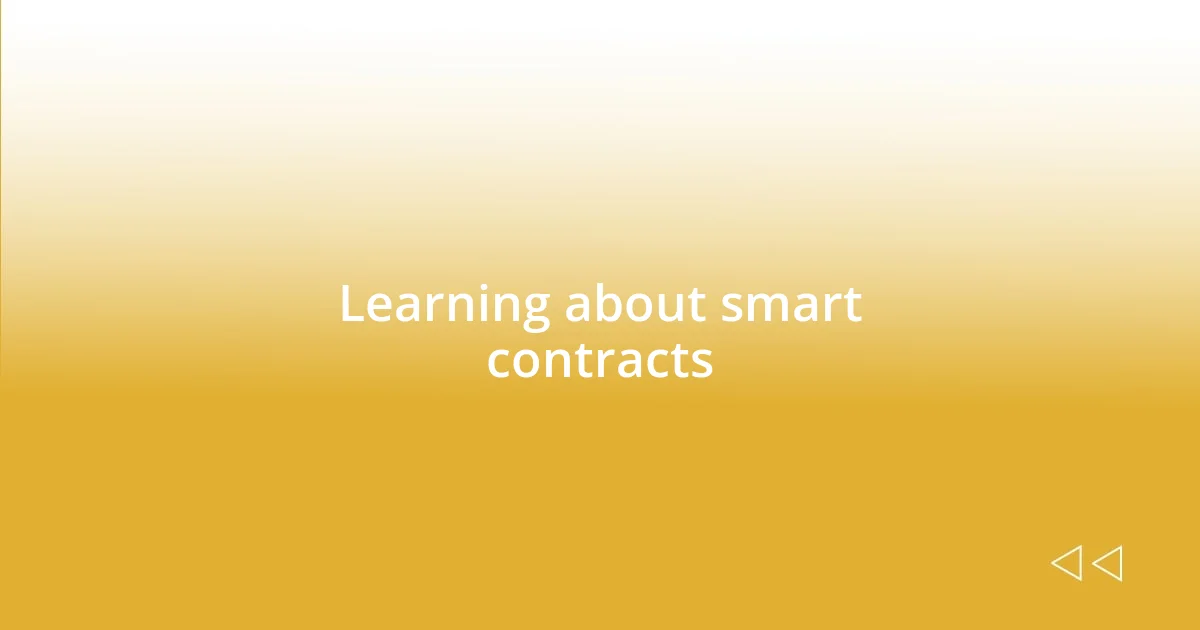
Learning about smart contracts
Learning about smart contracts opened my eyes to a new realm of possibilities in finance. Initially, I had no idea how these self-executing contracts worked, but once I dove in, I was captivated. It struck me as a perfect blend of technology and law; conditions coded directly into the blockchain removed the need for intermediaries like lawyers or notaries. Isn’t it astonishing to think that a computer program can handle contractual agreements more efficiently than people?
My first experience with a smart contract was when I participated in a decentralized finance (DeFi) application. The thrill of setting up an agreement that would transfer funds automatically once certain conditions were met felt empowering. Watching the process unfold in real-time reinforced my trust in technology, while the transparency made me appreciate the concept even more. I couldn’t help but feel like I was part of something revolutionary—who wouldn’t want that level of control in their financial dealings?
What truly excited me was discovering the potential for real-world applications, like in real estate transactions or insurance claims. One evening, as I researched how smart contracts could streamline these processes, I envisioned a future where buying a home didn’t involve mountains of paperwork and countless meetings. This notion was thrilling! Can you imagine the peace of mind knowing your agreements are not only secure but also transparent and automatic? Embracing smart contracts transformed how I perceive agreements, and it has motivated me to seek out opportunities that leverage this remarkable technology.
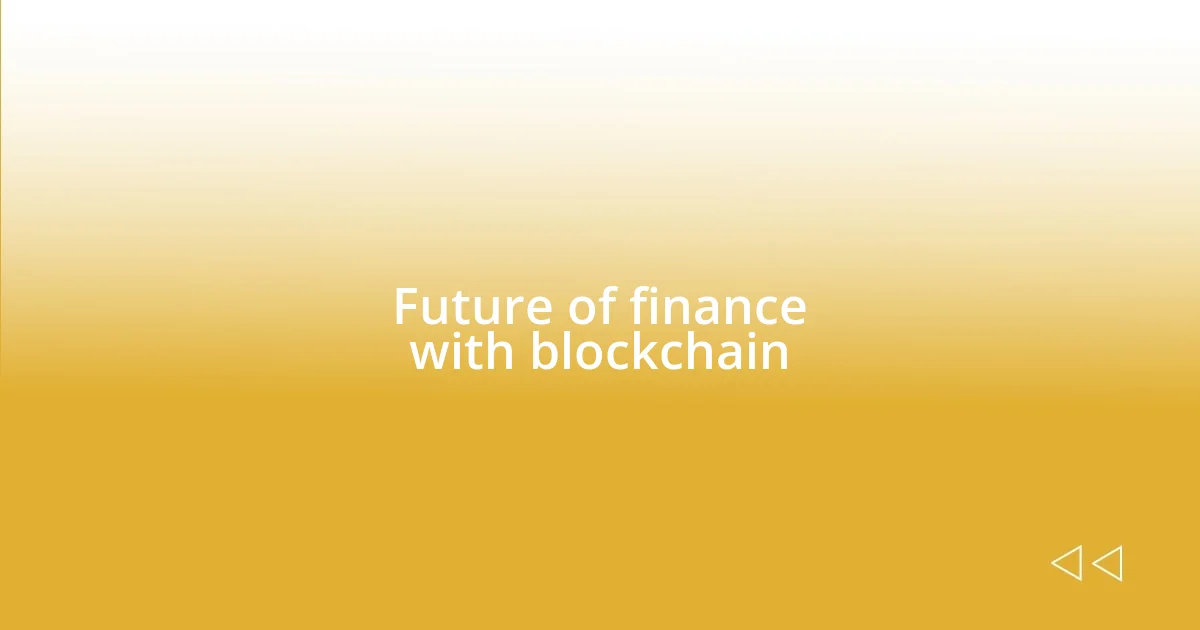
Future of finance with blockchain
Imagine a world where financial transactions happen in a blink, with blockchain facilitating them seamlessly. Just the other day, I conducted a transaction using a decentralized platform, and the satisfaction I felt watching the process unfold in real-time was indescribable. There’s something revolutionary about knowing that my transfer was secure, instant, and devoid of cumbersome fees or delays. Isn’t it liberating to think about a financial landscape where our money moves as swiftly as we do?
As I ponder the future of finance, I can’t help but reflect on the power of decentralized finance (DeFi) in reshaping traditional banking models. I remember feeling a rush of empowerment when I first claimed interest on my crypto savings through a DeFi app. Without intermediaries, the experience felt personal and direct, almost as if I were cutting out the middleman in my financial journey. Could this mark the beginning of a more inclusive financial system, where anyone with internet access can participate?
We’re also witnessing a surge in tokens representing real-world assets, which blurs the lines between finance and ownership. Recently, I watched a documentary on tokenized real estate and found myself daydreaming about owning a slice of a skyscraper through a few simple clicks. The thought of owning fractions of properties or artwork feels surreal, doesn’t it? It’s a vivid reminder that blockchain is not just a technology; it’s altering our perceptions of wealth, ownership, and what accessibility looks like in the financial world.


